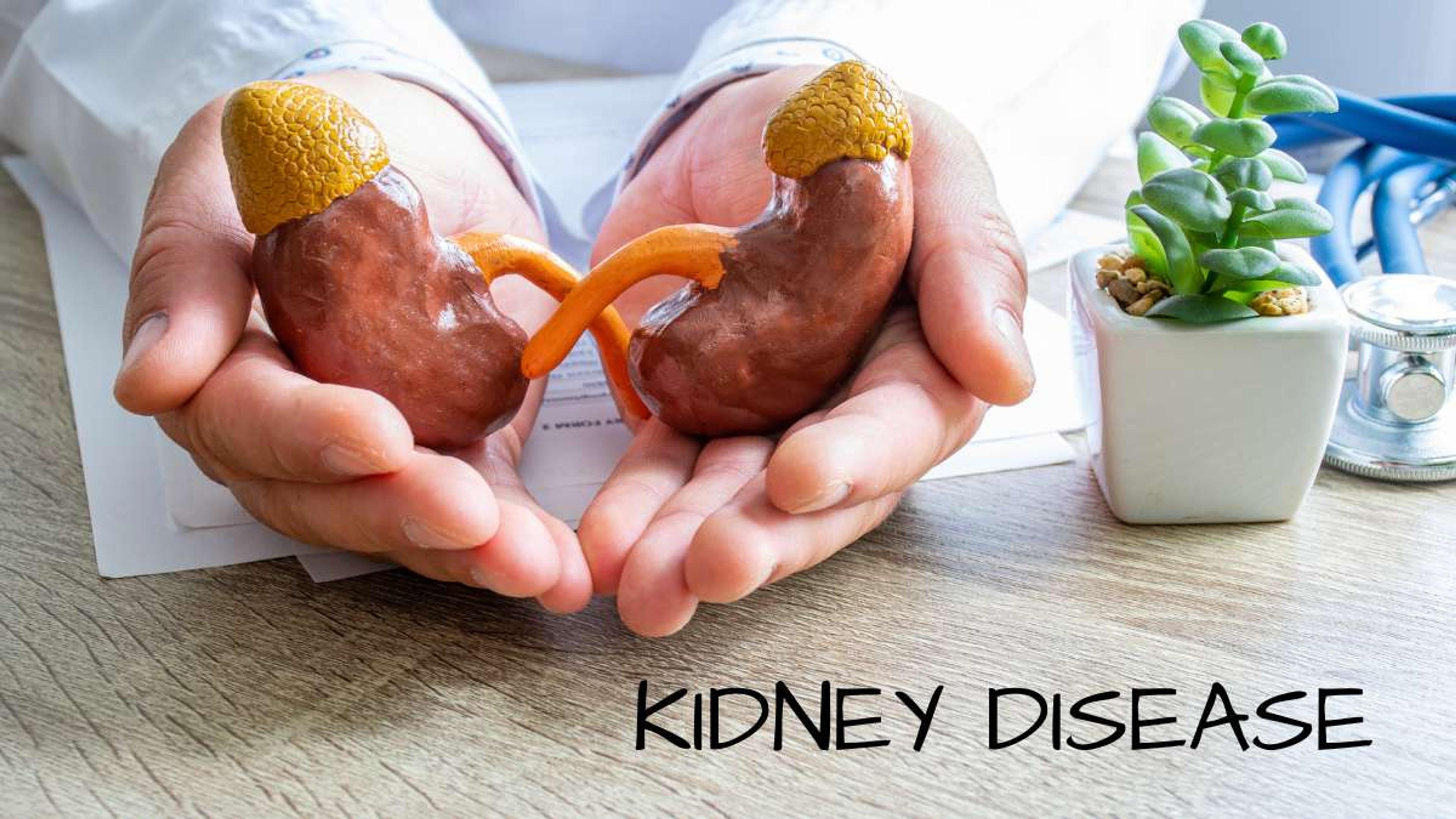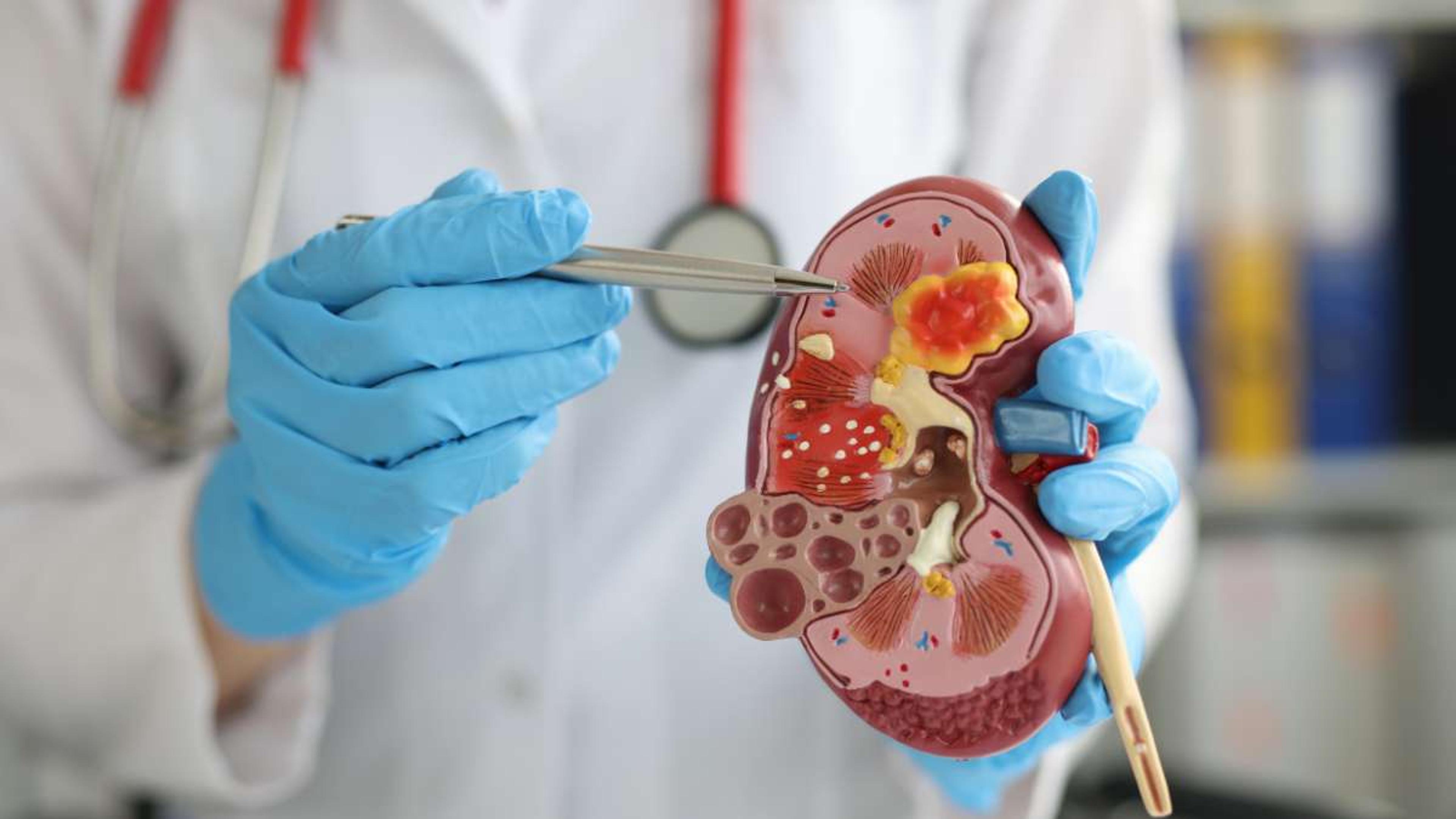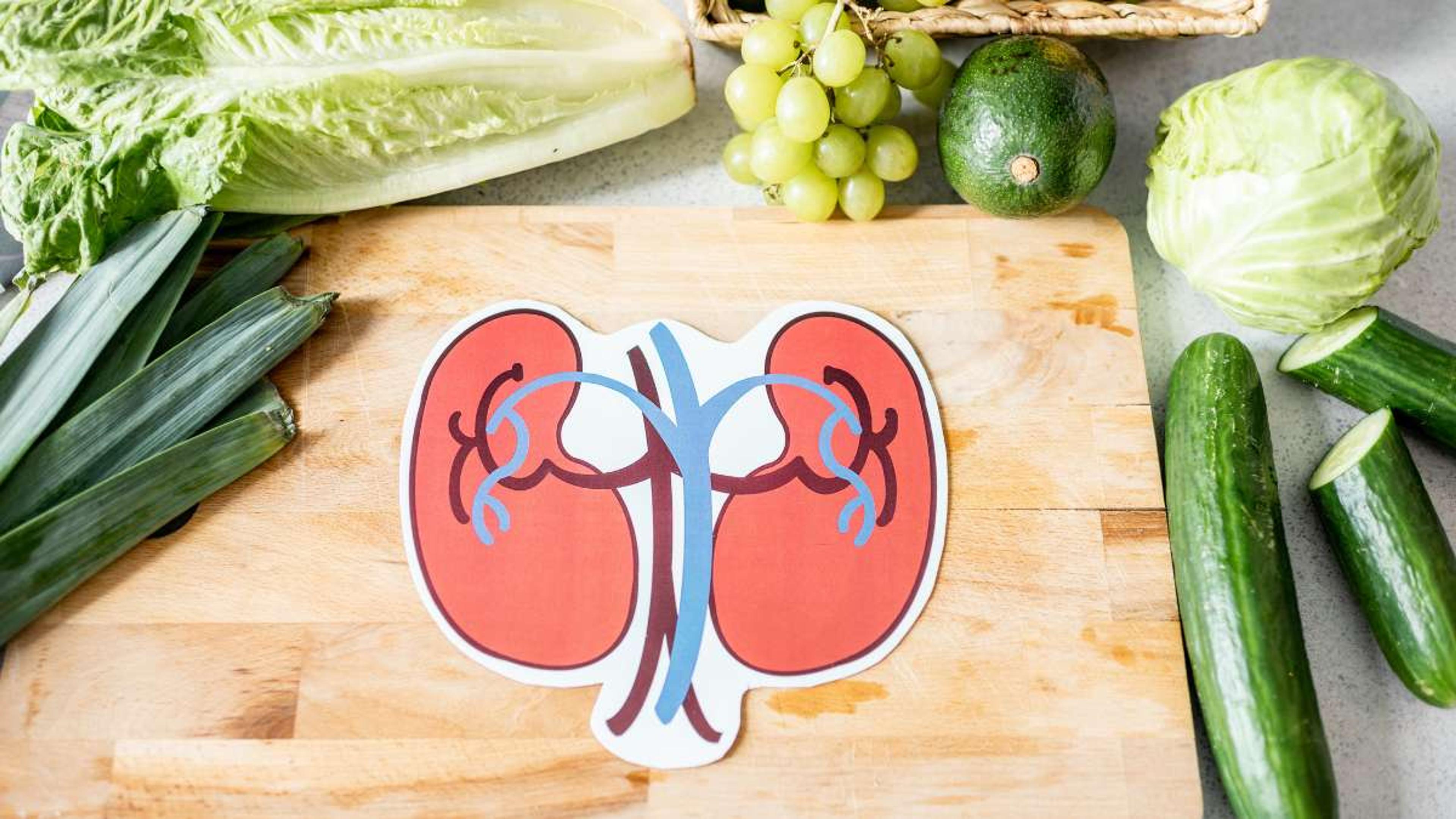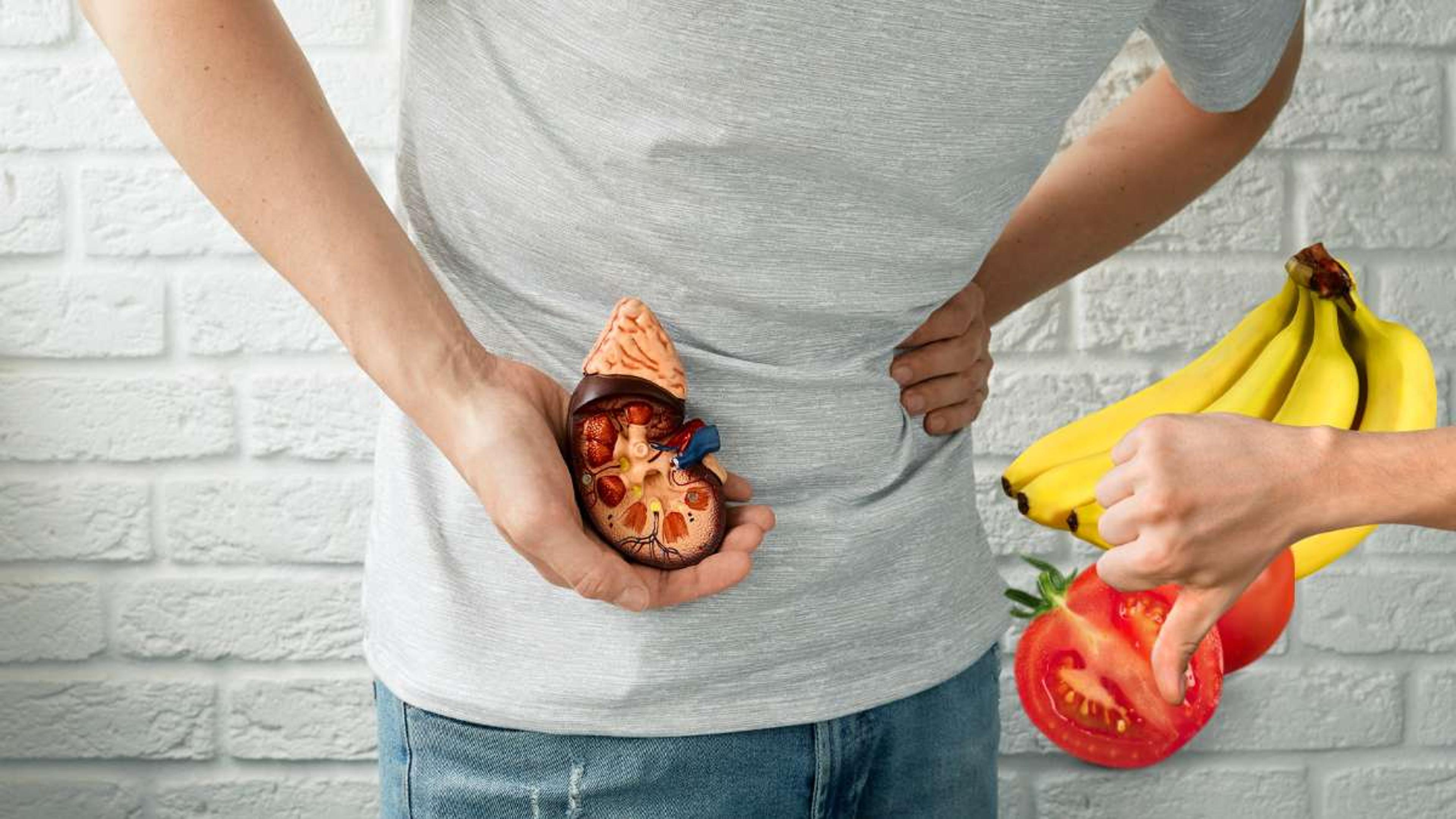Vegan Diet For Kidney Disease: A Comprehensive Guide

- Key Takeaways
- The Benefits of a Plant-Based Diet for Kidney Health
- Nutritional Considerations
- Recommended Foods for a Vegan Diet for Kidney Disease
- Foods to Avoid in a Vegan Diet for Kidney Disease
- Tips for Incorporating a Vegan Diet for Kidney Disease
- Importance of Consulting a Healthcare Professional
- Conclusion
- FAQs
Living with kidney disease can be a challenge, especially when trying to manage your diet. Research indicates that adopting a plant-based or vegan diet could significantly improve kidney health and function. For those with advanced kidney disease, dialysis may be necessary to remove waste and excess fluid from the body.
This blog post will provide informative guidance on how a vegan diet can potentially benefit people with kidney diseases, highlighting recommended foods and what to avoid. Intrigued?
Let's delve into the secrets of a health-promoting vegan diet for better kidney health!
Key Takeaways
- Adopting a vegan diet can potentially improve kidney health and function in individuals with kidney disease.
- A plant-based diet for kidney health offers several benefits, including reduced kidney load from animal protein, lower intake of saturated fat and cholesterol, increased antioxidants and anti-inflammatory compounds, and improved gut health due to increased fiber intake.
- Monitoring protein intake, managing potassium and phosphorus levels, ensuring calcium and vitamin D, and using supplementation if necessary are important considerations when following a vegan diet for kidney disease.
- Recommended foods for a vegan diet for kidney disease include low-phosphorus protein options like tofu and lentils, high-fiber low-potassium fruits and vegetables like berries and green beans, kidney-friendly grains like quinoa and millet, as well as healthy fats from avocados and nuts.
- Foods to avoid in a vegan diet for kidney disease include high-sodium processed foods like canned soups and snacks, excessive plant-based proteins such as seitan or tempeh, high-potassium fruits like bananas or tomatoes in moderation. It is also important to moderate the intake of high-phosphorus foods such as dark sodas or processed meats.
- Consulting with healthcare professionals or registered dietitians is crucial to ensure personalized dietary recommendations based on individual needs when following a vegan diet for kidney disease. Making gradual transitions can help successfully incorporate a vegan diet into a renal-friendly lifestyle.
The Benefits of a Plant-Based Diet for Kidney Health
A plant-based diet for kidney health offers several benefits, including reduced kidney load from animal protein, lower intake of saturated fat and cholesterol, increased antioxidants and anti-inflammatory compounds, improved gut health due to increased fiber intake, and the inclusion of vegetable protein.

1. Reduced kidney load from animal protein
Eating less animal protein can help your kidneys. Animal proteins make the kidneys work harder. This is not good for people with kidney disease. Plant proteins are a great source of protein and are easier on the kidneys.
They lessen this stress and cut down the risk of kidney damage. So, swap out meat and dairy for beans, lentils, tofu, and other plant foods.
2. Lowering saturated fat and cholesterol intake
A plant-based diet is great for kidney health. It has less saturated fat and cholesterol. Too much of these can hurt your kidneys. Eating more veggies and fruits helps lower them.
It also keeps your heart healthy. A strong heart helps the kidneys do their job better, too! So swap out those fatty meats for fresh greens and whole grains, and consider incorporating a vegetarian diet. Your kidney will thank you later.
3. Increased antioxidants and anti-inflammatory compounds
Eating plants, including vegetarian foods, helps your kidneys stay healthy. Plant foods have things in them called antioxidants, which are good for kidney health. They also fight swelling and harm that might happen to our bodies, making them an important part of preventing renal failure.
Think about vitamins C and E or carotenoids, these are all antioxidants in plant foods. Foods like fruits, veggies, grains and beans can help fix and keep up your renal function and kidneys working well too.
It's a big help if you have kidney disease! Just know that eating more of these types of food is a great move for better kidney health.
4. Increased fiber intake for improved gut health
A plant-based diet, such as a vegetarian or vegan diet, can be rich in fiber and can help boost metabolism. Fiber is important for our gut health because it helps to improve digestion and keeps things moving smoothly through our digestive system.
When we eat more fiber, it can reduce the fermentation of protein in our gut and increase the fermentation of carbohydrates. This shift has been linked to better gut health. Understanding different cooking methods can help increase fiber intake in a vegan diet, which tends to provide more fiber compared to diets that include animal products.
There are also specific plant-based foods, like psyllium husk, that have high levels of fiber and can benefit kidney health. In cases where individuals with kidney disease need to increase their fiber intake, supplements like psyllium husk can be a good option.
Nutritional Considerations
Monitoring protein intake on a vegan diet is crucial for kidney health. Managing potassium and phosphorus levels is also important. Ensuring adequate calcium and vitamin D is necessary, and supplementation may be needed.
Read more to learn about the nutritional considerations for a vegan diet for kidney disease.

Monitoring protein intake on a vegan diet
It is important to monitor protein intake when following a vegan diet for kidney disease. While plant-based diets can provide ample protein, it is essential to ensure that you are getting enough proteins of the right types.
Legumes, tofu, tempeh, and seitan are good sources of plant-based protein. Keeping track of your daily protein consumption and consulting with a healthcare professional or registered dietitian can help ensure that you are meeting your nutritional needs while managing kidney disease effectively.
Remember that too much protein, even from plant sources, can potentially harm the kidneys in individuals with pre-existing kidney disease. So it's important to strike a balance and monitor your intake accordingly.
Managing potassium and phosphorus levels
For individuals with kidney disease following a vegan diet, it is important to manage potassium and phosphorus levels in their diet. Too much of these minerals can be harmful to the kidneys.
One way to do this is by limiting or avoiding high-potassium fruits and vegetables like bananas and tomatoes. It's also crucial to limit intake of legumes, nuts, and seeds as they contain phosphorus.
By monitoring the amount of potassium and phosphorus in the foods consumed, individuals can help maintain healthy levels for their kidneys. Consulting with a healthcare professional or registered dietitian specializing in renal health can provide personalized dietary recommendations to manage these mineral levels effectively.
Ensuring calcium and vitamin D
Getting enough calcium and vitamin D is important for individuals following a vegan diet for kidney disease. Calcium helps keep our bones strong, while vitamin D helps our bodies absorb calcium.
Fortunately, there are plant-based sources of both nutrients that can be included in the diet. Foods like tofu, fortified non-dairy milk (like soy or almond milk), and leafy green vegetables like kale and broccoli are good sources of calcium.
Vitamin D can be obtained through exposure to sunlight, but it can also be found in fortified non-dairy milk and cereals, as well as in mushrooms. If needed, supplements may also be recommended by a healthcare professional to ensure adequate intake of these essential nutrients for kidney health.
Use supplementation if necessary
Supplementation may be necessary when following a vegan diet for kidney disease. Vegan diets may lack certain nutrients such as vitamins B12 and D.
It is important for individuals with kidney disease to ensure they are getting adequate intake of necessary nutrients on a vegan diet. Therefore, if there are any nutrient deficiencies or concerns about meeting nutritional needs, supplementation can help fill in the gaps and maintain overall health.
Recommended Foods for a Vegan Diet for Kidney Disease
Include low-phosphorus protein options such as tofu and lentils, incorporate high-fiber, low-potassium fruits and vegetables like berries and green beans, choose kidney-friendly grains like quinoa and millet, and include healthy fats from avocados and nuts.
1. Low-phosphorus protein options
For people with kidney disease who follow a vegan diet, it's important to find low-phosphorus protein options. While plant proteins can be high in phosphorus, there are ways to choose lower phosphorus sources.
It's recommended to limit legumes like beans and lentils, as well as nuts and seeds since they contain higher levels of phosphorus. Instead, opt for tofu or tempeh made from calcium-set soybeans since they tend to have less phosphorus.
Additionally, including grains like quinoa and millet can provide some protein while being lower in phosphorus compared to other plant-based options. Remember that consulting with a healthcare professional or registered dietitian is important for personalized dietary recommendations based on individual needs.
2. Low-sodium seasonings and herbs
Using low-sodium seasonings and herbs is a great way to add flavor to your food without adding extra salt. Fresh herbs, spices, and citrus can be used to enhance the taste of your meals while keeping sodium levels in check.
These options are especially beneficial for those following a vegan diet for kidney disease, as they help reduce the risk of high blood pressure and fluid retention. By choosing low-sodium seasonings and herbs, you can enjoy deliciously seasoned dishes that support your kidney health.
3. High-fiber, Low-potassium fruits and vegetables
Eating fruits and vegetables that are high in fiber and low in potassium can be beneficial for kidney health. These foods, such as berries, green beans, broccoli, and lettuce, not only provide important nutrients but also help improve gut health due to their fiber content.
For individuals with chronic kidney disease (CKD), it is crucial to monitor potassium levels to avoid complications. However, incorporating high-fiber plant-based foods into the diet can be a safe choice because they contain lower amounts of potassium compared to other sources.
This means that CKD patients can still enjoy the benefits of fiber without worrying too much about their potassium intake.
4. Kidney-friendly grains and legumes
Kidney-friendly grains and legumes are important components of a vegan diet for kidney disease. Whole grains like quinoa, millet, and brown rice provide fiber and essential nutrients while being low in phosphorus.
Legumes such as lentils and tofu are excellent sources of plant-based protein that can replace animal proteins in the diet. However, it is crucial to monitor potassium and phosphorus levels when consuming legumes since they can be high in these minerals.
By including kidney-friendly grains and legumes in their meals, individuals with kidney disease can enjoy delicious plant-based options while maintaining their nutritional balance.
5. Healthy fats from sources like avocados and nuts
Avocados, nuts, and seeds are good sources of healthy fats that can be included in a vegan diet for kidney disease. These fats play an important role in protecting the kidneys from damage by helping to improve blood flow and reducing inflammation.
Including these foods in your diet can help repair and maintain healthy kidneys. So, don't forget to add some avocados and nuts to your meals!
Foods to Avoid in a Vegan Diet for Kidney Disease
Avoid high-sodium processed foods like canned soups and snacks, as well as excessive plant-based proteins such as seitan and tempeh. Additionally, it is important to moderate your intake of high-potassium fruits and vegetables like bananas and tomatoes, as well as high-phosphorus foods including dark sodas and processed meats.

1. High-sodium processed foods (canned soups, snacks)
High-sodium processed foods like canned soups and snacks should be avoided in a vegan diet for kidney disease. These types of foods are often high in sodium due to the processing methods used, which can negatively impact kidney health.
Consuming too much sodium can increase blood pressure and put extra strain on the kidneys. It is important for individuals with kidney disease to limit their intake of these high-sodium processed foods to help manage their condition effectively.
2. High-potassium fruits and vegetables in moderation (bananas, tomatoes)
Bananas and tomatoes are considered high in potassium, which can be an issue for individuals with kidney disease. In the past, people with kidney disease were advised to limit their intake of fruits and vegetables due to their potassium content.
However, research is now showing that a plant-based diet can still be beneficial for those with chronic kidney disease without significantly raising potassium levels. It's important to consume high-potassium fruits and vegetables in moderation and work closely with a healthcare professional or registered dietitian to determine the right amounts for your individual needs.
3. Excessive plant-based proteins (seitan, tempeh)
Excessive plant-based proteins like seitan and tempeh should be avoided in a vegan diet for kidney disease. This is because high protein diets can be problematic for people with existing kidney problems.
Seitan, specifically made from vital wheat gluten, should also be avoided by individuals with celiac disease or gluten allergies. It's important to consume an appropriate amount of protein without overdoing it to protect the kidneys and maintain overall health when following a vegan diet for kidney disease.
4. High-phosphorus foods (dark sodas, processed meats)
Dark sodas and processed meats (won't matter if you are fully vegan) are high in phosphorus, which is a nutrient that can be problematic for people with kidney disease. Phosphorus additives found in dark-colored sodas are very easy for the body to absorb.
Processed meats, like hot dogs and sausages, also contain high levels of phosphorus. Since too much phosphorus can lead to complications, it's important for individuals with kidney disease to avoid these foods.
Tips for Incorporating a Vegan Diet for Kidney Disease
Gradually transition to a vegan diet, plan and prepare meals in advance, and carefully read food labels for sodium and phosphorus content.

Gradual transition to a vegan diet
Transitioning to a vegan diet for kidney disease is best done gradually. This means slowly replacing animal-based foods with plant-based alternatives over time. By doing this, you give your body the chance to adjust and adapt to the changes in your diet.
Studies have shown that a gradual transition to a vegan diet is associated with a 31% lower risk of chronic kidney disease in patients with hyperuricemia. It's important to consult with a healthcare professional or registered dietitian who can provide personalized dietary recommendations and ensure you are getting all the necessary nutrients, enjoy a healthy weight while managing your kidney health effectively.
Meal planning and preparation
Meal planning and preparation plays a crucial role in adopting and maintaining a vegan diet for kidney disease. By carefully selecting and preparing appropriate foods, you can ensure that your meals are both nutritious and kidney-friendly.
Plan your meals ahead of time to include a variety of low-phosphorus protein sources, such as tofu or lentils, along with high-fiber fruits and vegetables. Be mindful of sodium content by using low-sodium seasonings and herbs instead of salt.
When reading food labels, pay attention to the amount of phosphorus and potassium in packaged foods. Consulting with a healthcare professional or registered dietitian can provide personalized guidance on meal planning based on your specific dietary needs.
Reading food labels for sodium and phosphorus content
It is important for individuals with kidney disease to read food labels carefully, especially when it comes to sodium and phosphorus content. The nutrition facts label provides information on specific nutrients in the food we eat.
This includes the amount of sodium and phosphorus present in a serving. For people with kidney disease, it is crucial to monitor their intake of these minerals as high levels can be harmful to kidney health.
By paying attention to food labels, individuals can make informed choices about what they consume and ensure they are keeping their sodium and phosphorus intake within recommended limits.
Importance of Consulting a Healthcare Professional
Consulting a healthcare professional is crucial when adopting a vegan diet for kidney disease, as they can provide personalized dietary recommendations based on individual needs and medical history.
They can also monitor kidney function and provide guidance on fluid management, ensuring that the vegan kidney diet supports optimal kidney health.

Personalized dietary recommendations
For personalized dietary recommendations for individuals with kidney disease, it is essential to consult a healthcare professional or registered dietitian. They can provide guidance on managing protein intake, monitoring potassium and phosphorus levels, ensuring adequate calcium and vitamin D, and addressing any specific nutritional needs.
By working closely with a healthcare professional, individuals can develop a personalized diet plan that suits their unique situation and helps support optimal kidney health. It is also important to stay hydrated and monitor kidney function regularly to ensure the diet is effective in managing the disease.
Consulting a healthcare professional ensures that dietary choices align with individual needs while providing proper nutrition for overall well-being.
Importance of Hydration and Fluid Management
Proper hydration and fluid management are crucial for individuals following a vegan diet for kidney disease. Adequate water intake helps maintain diluted urine, reducing the risk of developing kidney stones.
It is especially important for patients with polycystic kidney disease, as they have a higher risk of kidney stone formation. Consulting a healthcare professional is essential to ensure that individuals are taking the right amounts of water intake(depending on the existing kidney functionality), staying properly hydrated and managing their fluids effectively while on a vegan diet for kidney disease.
By doing so, they can support their overall kidney health and minimize potential complications associated with dehydration or improper fluid balance.
Monitoring kidney function
It is important for individuals with kidney disease to regularly monitor their kidney function. This can be done through blood tests that measure levels of creatinine and estimated glomerular filtration rate (eGFR).
These tests help healthcare professionals assess the health of the kidneys and determine if any adjustments need to be made to the diet or treatment plan. Monitoring kidney function allows for early detection of any changes or worsening of kidney disease, which can prompt timely interventions to slow down its progression.
By staying proactive in monitoring kidney function, individuals can ensure they are taking the necessary steps towards maintaining their overall kidney health.
Conclusion
In conclusion, a vegan diet can be beneficial for individuals with kidney disease. By reducing the kidney load from animal protein, lowering saturated fat and cholesterol intake, increasing antioxidants and anti-inflammatory compounds, and improving gut health through increased fiber intake, a plant-based diet supports overall kidney health.
However, it is important to consult with a healthcare professional to ensure proper nutritional considerations and guidance specific to individual needs. Making gradual transitions and incorporating meal planning can help successfully incorporate a vegan diet into a renal-friendly lifestyle.
FAQs
1. Can a vegan diet be beneficial for kidney disease?
Yes, a well-planned vegan diet can be beneficial for kidney disease as it typically includes lower amounts of protein and sodium, which can help manage the condition.
2. What are some good sources of plant-based protein for a vegan with kidney disease?
Good sources of plant-based protein for vegans with kidney disease include legumes, tofu, tempeh, quinoa, and nuts/seeds in moderation.
3. Is it necessary to monitor nutrient intake on a vegan diet for kidney disease?
Yes, it is important to monitor nutrient intake on a vegan diet for kidney disease to ensure adequate consumption of essential nutrients like calcium, iron, vitamin B12 and D.
4. Are there any specific foods that should be avoided on a vegan diet for kidney disease?
Some foods that should be avoided or limited on a vegan diet for kidney disease include high-sodium processed foods (canned soups/vegetables), excessive amounts of phosphorus-rich foods (whole grains/nuts/seeds), and high-potassium fruits/vegetables (bananas/tomatoes).

